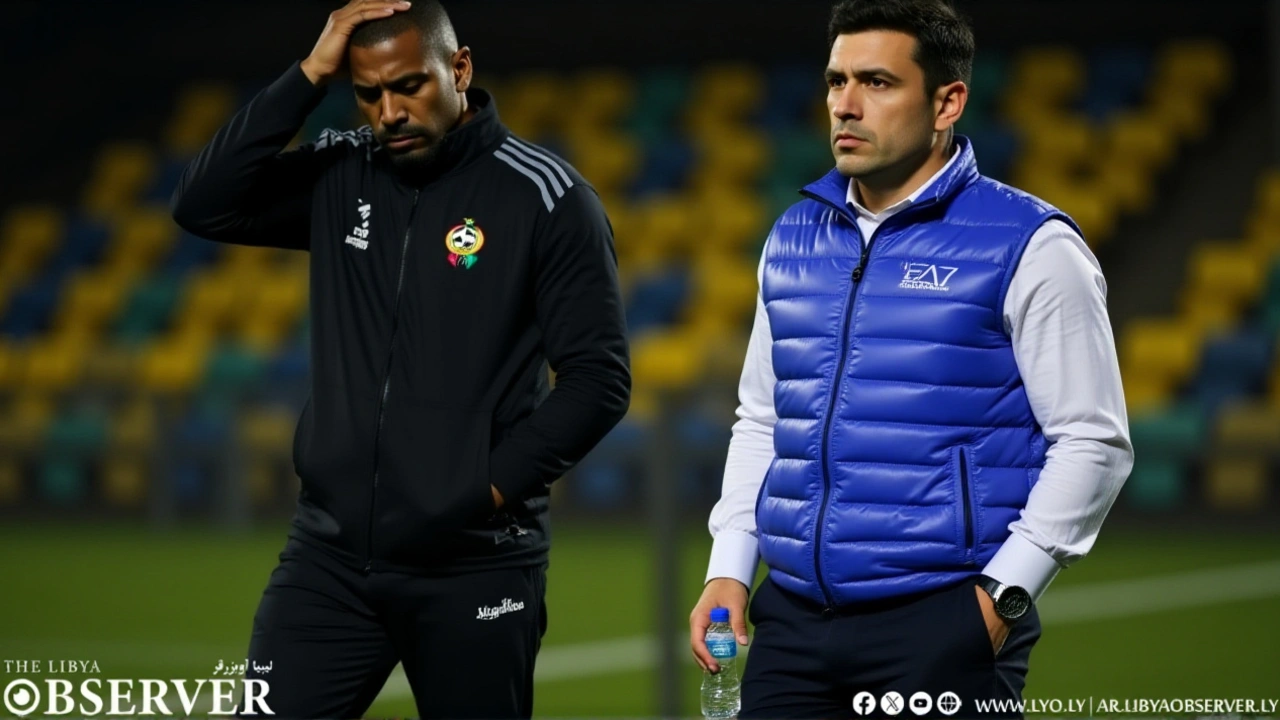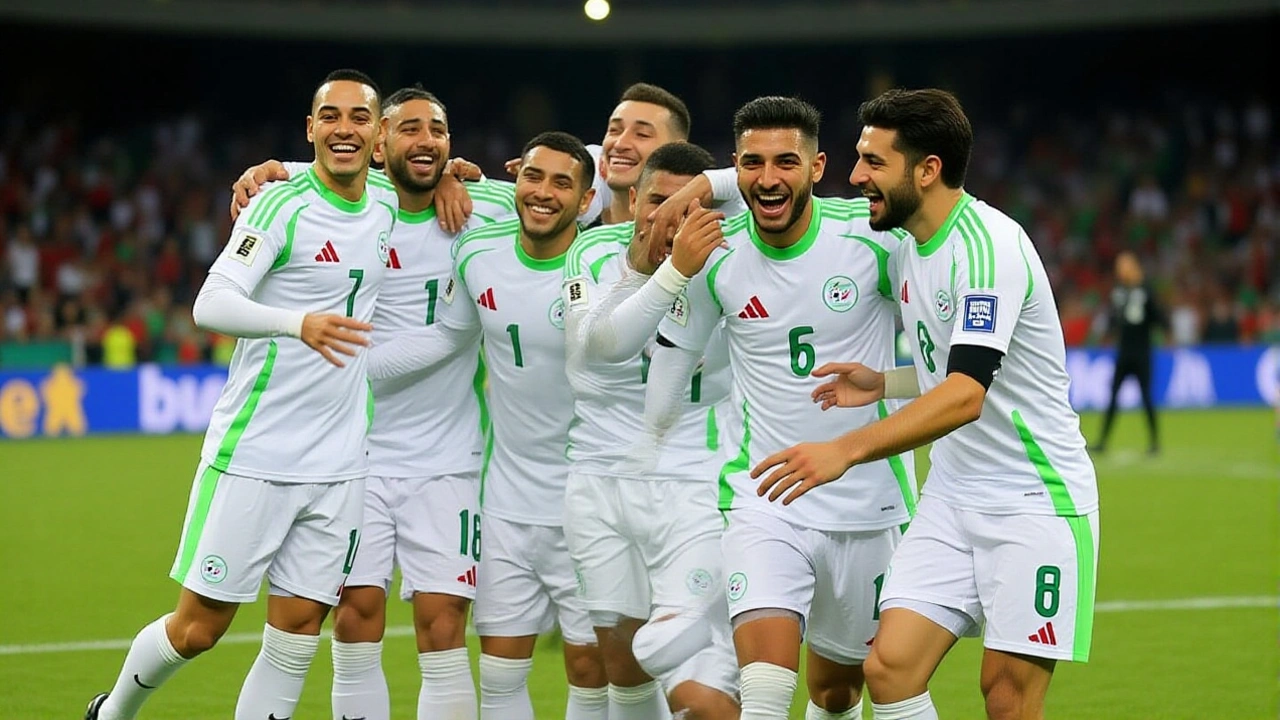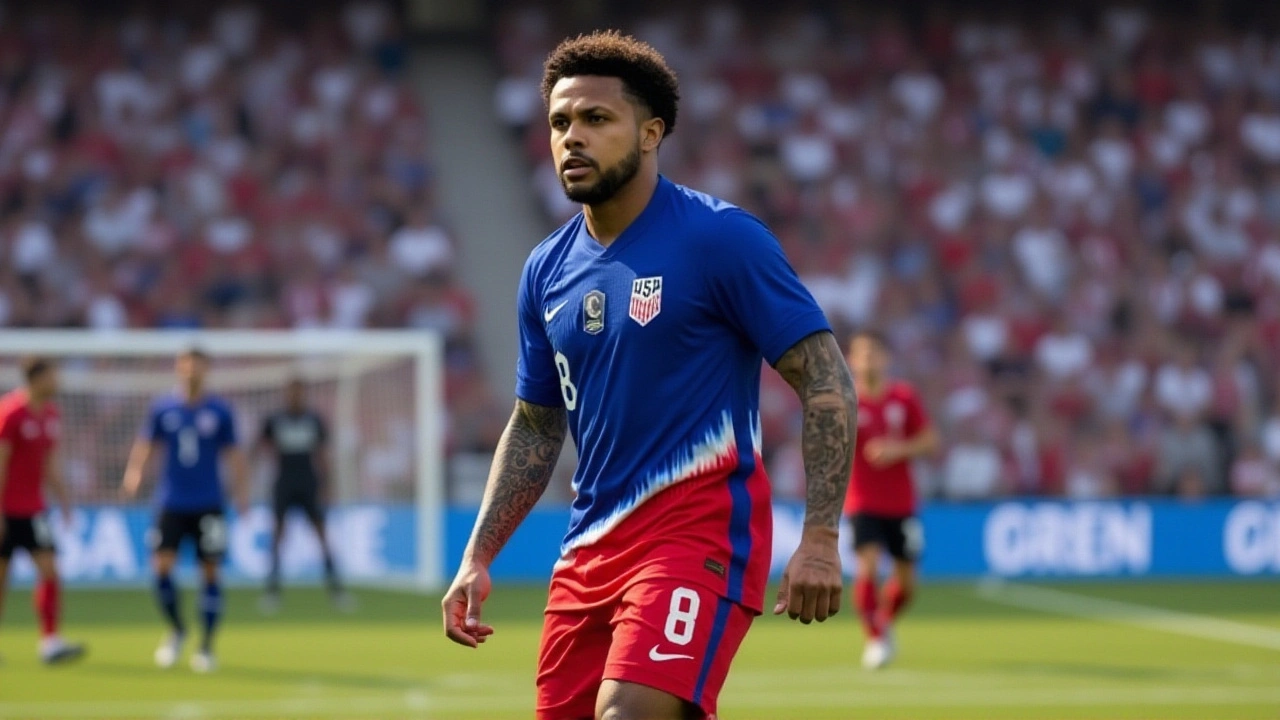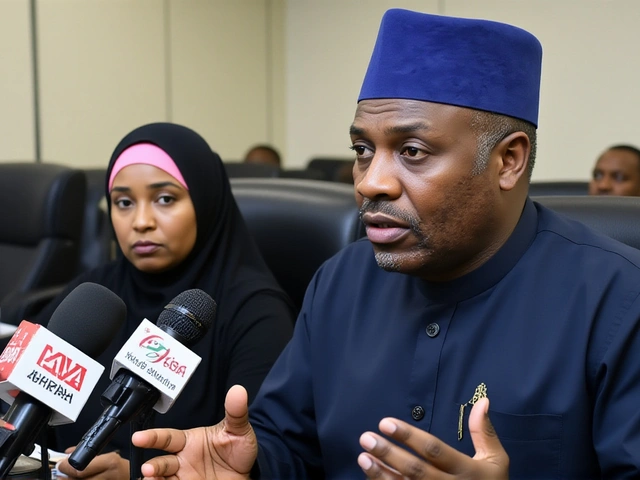When Confederation of African Football (CAF) announced the final round‑of‑group fixtures on 15 November 2023, nobody could have guessed that by 8 October 2025 only two African nations would have punched their tickets to the 2026 FIFA World Cup. FIFA confirmed that Tunisia earned its place with a dramatic 94th‑minute header against Equatorial Guinea, while Morocco had already secured theirs weeks earlier. The stakes couldn’t be higher: nine group winners, plus a four‑team playoff for the strongest runners‑up, will decide who joins the North African duo in Canada, Mexico and the United States next June.
Qualification Overview: How the CAF Roadmap Works
The CAF 2026 World Cup qualificationAfrica pits 54 nations against each other in nine groups of six. Each team plays home‑and‑away fixtures; the group leader earns a direct World Cup berth. The four best second‑placed sides (excluding groups with an eliminated team) advance to a knockout mini‑tournament in November 2025, with the winner heading to an inter‑confederation playoff.
Current Group Leaders and the Numbers Behind Them
- Group A: Egypt sits atop with 20 points and a +14 goal difference.
- Group B: Senegal leads on 18 points, edging out the Democratic Republic of Congo.
- Group C: After a three‑point FIFA sanction, Benin briefly sits first, though the race remains open.
- Group G: Algeria commands the table with 19 points from eight matches.
These figures are more than just numbers; they dictate who will travel to the Americas and who will face the heartbreak of a playoff.
Key Matches, Controversies and What They Mean
One of the most talked‑about incidents came in the South Africa‑Nigeria clash. Nigeria’s star striker Victor Osimhen was forced off after a reckless tackle in the 30th minute, limiting his impact and sparking debates over referee consistency across the continent.
Meanwhile, Gernot Rohr, coach of Benin, warned that his team’s “very difficult” path remains unchanged despite temporarily topping Group C. “We can’t rest on a penalty‑derived lead,” Rohr told local media after Benin’s 1‑0 win over Rwanda.
Officiating also grabbed headlines. Egyptian referee Mohamed Maarouf Eid Mansour supervised the high‑octane South Africa vs. Zimbabwe match at Johannesburg’s Orlando Stadium, while Eswatini’s Thulani Sibandze oversaw the modest Lesotho‑Rwanda fixture attended by just 3,600 fans.

Player Highlights That Could Shift the Balance
The goalscoring charts are currently led by Algeria’s youngsters, who rattled off a 5‑1 demolition of Mozambique on 2 September 2025. On the other side, Burkina Faso’s forward Bakary Sako delivered a late winner that kept Zambia’s hopes alive in Group D.
In the North, Morocco’s seasoned forward Youssef En-Nesyri bagged a tidy 2‑0 victory over Tanzania, signalling the team’s intent to finish the group stage with a clean sheet.
Road to the Playoffs: What the Remaining Fixtures Hold
With only two matchdays left before the 14 October deadline, the picture is still fluid. In Group A, Egypt must avoid a slip‑up against Burkina Faso; a draw could open the door for the West African side to claim second place on goal difference.
Group G’s battle for the best runner‑up spot is razor‑thin. Algeria sits comfortably at the top, but Uganda’s unbeaten streak (five wins, three losses) means a win against Mozambique could see the Ugandans overtake Guinea for the coveted fourth‑best runner‑up slot.
The mini‑playoff scheduled for 10‑18 November will be a high‑stakes, single‑elimination affair. The winner joins the inter‑confederation showdown against a South American or Asian opponent for the final 2026 spot.

Why This Matters Beyond the Pitch
For many African nations, a World Cup berth translates into billions of dollars in sponsorship, tourism and infrastructural investment. Tunisia’s early qualification already sparked a surge in local businesses, from jersey sales to travel agencies promoting “World Cup tours”. Morocco’s consistent presence boosts its image as a football powerhouse, attracting foreign clubs to consider training camps on its Atlantic coast.
Moreover, the qualifiers serve as a barometer for the continent’s football development programs. Nations that invest in grassroots academies, like Algeria and Egypt, are reaping the rewards, while countries with limited resources are watching closely, hoping a surprise upset could rewrite their footballing destiny.
Historical Context: Africa’s Journey to the World Stage
Since the 1990 World Cup in Italy, when Cameroon’s “Indomitable Lions” stunned the world, Africa’s representation has grown from three spots to a projected 9‑12 by 2026, depending on FIFA’s final allocation. The current format, introduced in 2023, aims to reduce the reliance on inter‑confederation playoffs, giving more African teams a direct route.
Past qualifiers have often been marred by logistical hiccups, but the 2025 cycle appears smoother, thanks to CAF’s partnership with broadcasters like ESPN and AfricanFootball.com, which provide live streams and comprehensive match analysis across the continent.
Frequently Asked Questions
How many African teams will play in the 2026 World Cup?
FIFA has allocated nine direct slots to Africa for the 2026 tournament. An additional team could qualify through the inter‑confederation playoff, potentially raising Africa’s total to ten.
Which nations have already secured qualification?
As of 8 October 2025, Tunisia and Morocco have clinched their spots, each topping their respective groups with games to spare.
What happens to the best runners‑up?
The four highest‑ranked second‑placed teams enter a knockout mini‑tournament in November 2025. The winner proceeds to an inter‑confederation playoff for a final World Cup berth.
Why was South Africa docked three points?
FIFA penalised South Africa for breaching administrative regulations related to player eligibility. The sanction lowered their group total, temporarily handing the lead to Benin.
When will the final African qualifiers be decided?
The last round of group matches concludes on 14 October 2025. Playoff fixtures then run from 10‑18 November 2025, with the inter‑confederation playoff scheduled for early 2026.







Allen Rodi
October 9, 2025 AT 00:07 AMNice roundup on the qualifiers, really gives a solid picture of where things stand. Happy to see Tunisia and Morocco lock in early – that's going to spice up the later rounds.
Jody Webster
October 9, 2025 AT 01:31 AMWell,, i guess africa finally got its tickets??
Steve Goodger
October 9, 2025 AT 02:54 AMLooking at the broader context, the CAF qualification format is a massive step forward for African football development. By allocating nine direct slots, the Confederation acknowledges the continent's growing talent pool and competitive balance. This scheme also reduces reliance on inter‑confederation playoffs, which historically disadvantaged African teams. Moreover, the mini‑playoff for runners‑up adds a thrilling knockout element that can showcase emerging nations. It’s crucial for federations to invest in youth academies now, as the pipeline of players will determine future success. Nations like Egypt and Algeria have reaped benefits from sustained grassroots programs, evident in their consistent performances. Conversely, countries with limited resources must seek strategic partnerships to improve infrastructure. The recent surge in sponsorships, especially after Tunisia's qualification, underscores the economic potential tied to World Cup spots. Local businesses have seen a noticeable uptick in sales, from jersey merchandise to travel packages. Additionally, the exposure from televised matches can attract foreign clubs for training camps, boosting the host economies. Fans across the continent are more engaged than ever, leveraging social media to discuss tactics and player form. This heightened interest translates into higher viewership numbers, which in turn draw better broadcast deals. It’s also worth noting that the CAF’s collaboration with platforms like ESPN ensures broader accessibility. As the qualifiers wind down, the pressure on groups nearing the top will intensify, making every goal count. The upcoming fixtures could see dramatic swings in standings, especially in tightly contested groups. Finally, the success of the qualification process will likely influence FIFA’s future slot allocations, potentially increasing Africa's representation even further.
johnson ndiritu
October 9, 2025 AT 04:17 AMThe way some teams coasted to the top is downright infuriating, 😠 it feels like a slap in the face for nations that truly fought hard. Honestly, if CAF wants fairness, maybe they should re‑evaluate the point‑deduction policies that seem to favor the already‑powerful.
sheri macbeth
October 9, 2025 AT 05:41 AMSure, the qualifiers look clean, but have you considered the hidden agenda of the global elite pulling strings behind the scenes? Just kidding – or am I? 😉
Mark Langdon
October 9, 2025 AT 07:04 AMI totally get the excitement, but we need to keep the competition fierce. If any team slacks off, expect a serious backlash from the fans.
Ciara Russell-Baker
October 9, 2025 AT 08:27 AMHonestly, most of these teams are just coasting on their legacy, not actual skill. Their play is kinda weak, lol.
Aaron Samarita
October 9, 2025 AT 09:51 AMWhat a drama this qualification has turned into – the stakes are high, but the narratives are even higher. The media loves a good underdog story, and that's exactly what's being sold.
Daisy Pimentel
October 9, 2025 AT 11:14 AMWhen we talk about football, we must remember that sport reflects the society it emerges from. The passion of these African nations is a testament to resilience, and the World Cup stage is merely a canvas for their collective hope.
Ellen Ross
October 9, 2025 AT 12:37 PMOne could argue that the current format is a superficial attempt to appease the masses, when in reality, entrenched interests dictate the outcomes. Psh, it's all just staged drama.
Fabian Rademacher
October 9, 2025 AT 14:01 PMLook, the whole thing feels rigged, like there's a hidden playbook dictating who gets in. Anyway, gotta keep my eyes open and not trust the official line.